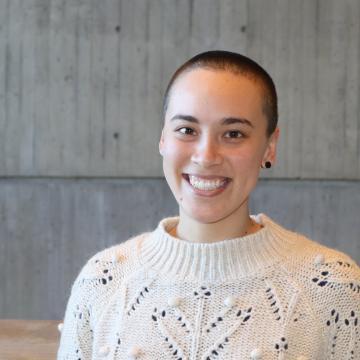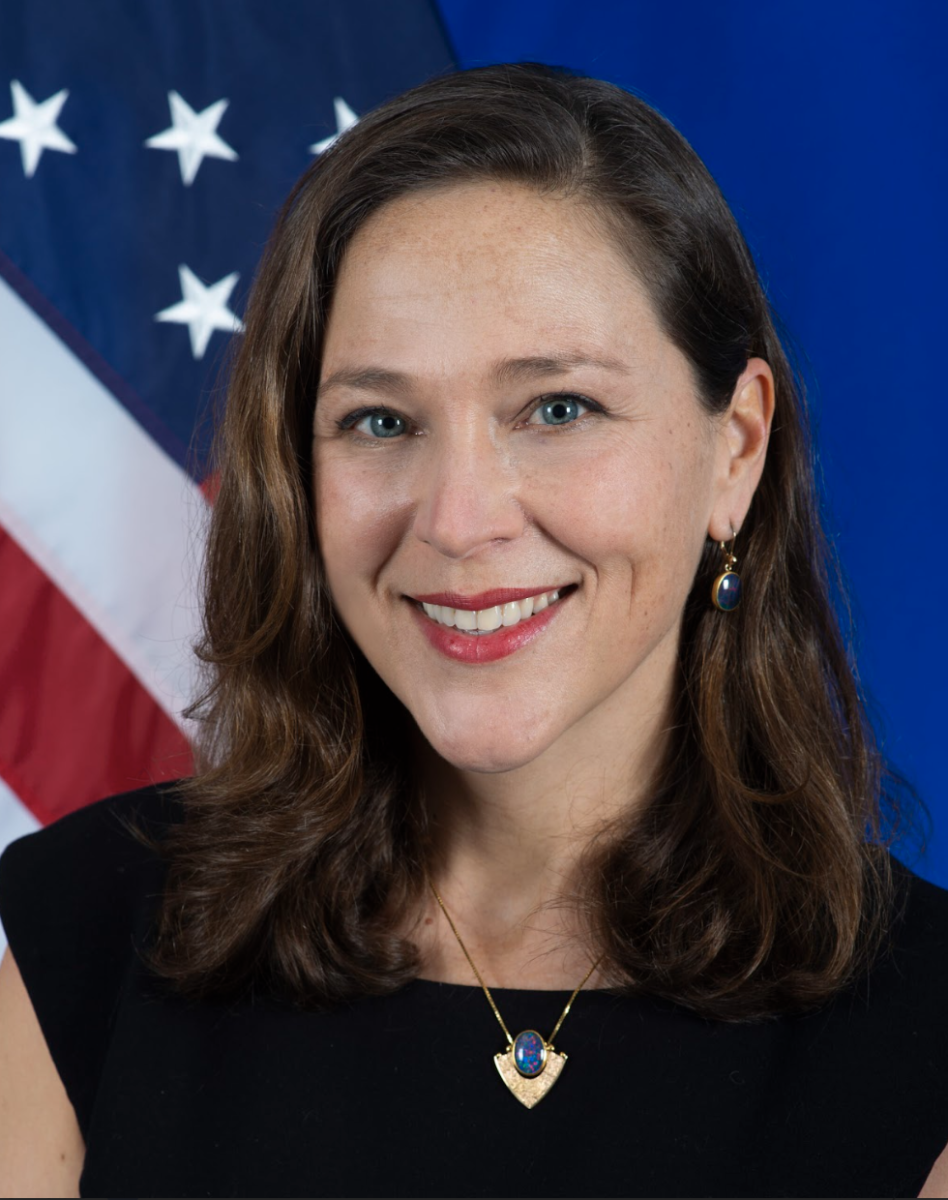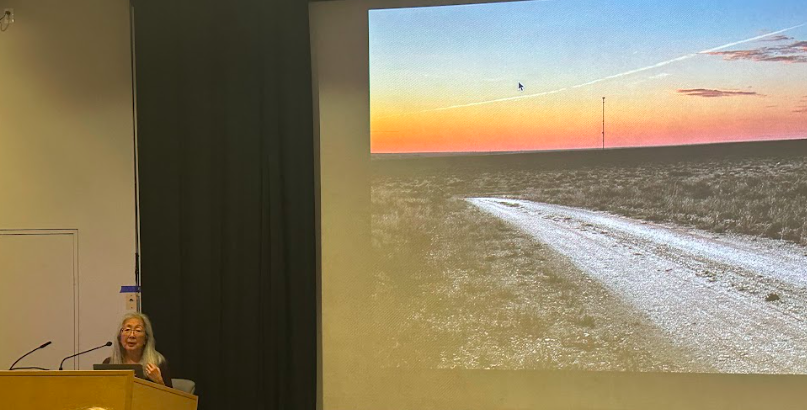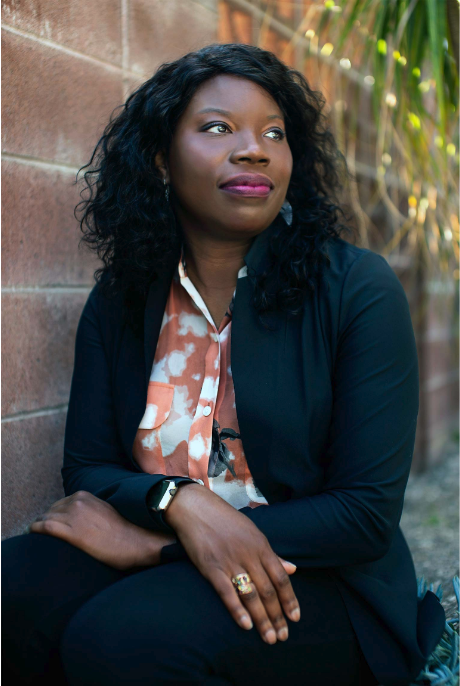While she didn’t know she’d be working on the city of Boston’s Climate Ready Boston program, Alisha Pegan ’16 had hoped for a long time that she would one day work in environmental studies.
“I would say that I was first interested [in environmental science] when I was in eighth grade,” she said. “I remember in our environmental studies class I read a passage about passive solar heating, and my stomach got butterflies. It just felt so right and natural.”
Pegan had always been aware of the importance of environmental preservation. As a child, she noticed how often adults talked about pollution and the misuse of natural resources, and said it made her feel guilty and scared. When she began to read about ways to make a positive impact on the environment, however, that guilt changed to purpose.
“I remember reading that passage, and it [described] how we could use solar heat to warm our homes, where humans reside, without actively using electricity or energy to warm the space,” she recalled. “That kind of got me into this whole initiative: how to learn more about ways that we can live more harmoniously with natural systems.”
Arriving at Wellesley, Pegan knew she was interested in working on green buildings, but she was unsure of whether to focus on engineering, architecture, or environmental studies. She ultimately decided to take both environmental studies and engineering classes, including taking advantage of Wellesley’s connection with Olin. Ultimately, Pegan would decide to do a 4+1 program, studying environmental science at Wellesley and design engineering at Olin. Along the way, she took several classes in urban planning at MIT, due to an interest in the subject that she developed while abroad in Copenhagen.
“My mind just exploded, and I finally understood that what I was interested in was sustainable urban design,” she said. “When I came back from that semester, I tried as much as I could to take as many classes [on the subject as possible] to feed me that knowledge.”
Climate Ready Boston, an initiative run by the city of Boston, is mostly concerned with implementing various projects aimed at helping Boston be resilient in the face of climate change. She says the project is currently looking at a total of 39 different initiatives that might help with this climate resiliency.
“It’s a very forward-looking project,” said Pegan. “We’re looking at projections up to 2070 and 2100.”
Pegan’s work mostly involves assisting with implementation, mostly by coordinating with other city and state departments as well as private businesses. Her work also involves interfacing with the independent contractors, like urban designers and other experts, who do the work that puts new policies into effect.
“My role is really helping them with that process: connecting them to the right data sets, connecting them to the right people, sending out emails, organizing meetings, and ensuring that the right people are at the table to make decisions on what solutions we can actually build in the short term and the long term,” she said.
One of the 39 initiatives Pegan is currently researching with Climate Ready Boston is how to prepare neighborhoods in Boston to stand up to coastal flooding, particularly in the wake of a potential 40-inch sea level rise by 2070, which Pegan says will likely affect between 15 and 18 percent of Bostonians.
“Our work [on that front] is to look at the five waterfront neighborhoods in Boston, and to study how the water is flowing into the neighborhood…and develop solutions right on the shoreline to prevent that flooding from happening in the first place,” she explained.
Plans for certain areas of Boston are already being implemented. Other areas are still being researched, or are still in review for grants.
Pegan is especially excited about the new Greenovate Leaders project, which aims to help educate people about the information released in a 2016 climate report.
“It was a 200-300 page report, and we knew that people weren’t going to read it,” she said. “We asked, how are we going to educate people about this information other than this giant report? So we developed this leadership program so we could train people…on all the climate change education specifically in the Boston area.”
The education developed by the Greenovate Leaders project was distributed on a neighborhood basis. Pegan says those who attended the training were asked to share the information they learned with twenty to thirty of their community members in whichever way they saw fit.
“We really didn’t care [how they shared the information], we just wanted them to share it in a way that people from their community would be excited to receive it,” Pegan said. “Often times, government entities aren’t trusted especially in low-income and POC communities, because there’s been so much damage done. I think it’s really important to recognize that when trying to do outreach work. You really need to recognize local leaders and local experts.”
Overall, due to the immense level of careful planning Climate Ready Boston has put into its initiatives, Pegan feels cautiously optimistic about Boston’s ability to be resilient in the face of climate change.
“In Boston, at least, there’s a lot of interest and momentum around this work,” she said. “I think things push when people care about them, honestly. We had two storm events last winter, and that really, really elevated our conversation. We were able to share the different Climate Ready Boston initiatives and educate people. There’s kind of an increase in fundamental knowledge about resilience and climate change in Boston.”
She added, “The more we can build that foundation and cultural capacity, the faster this work gets done…I find it inspiring to keep building knowledge, and I think it would be great for residents to hold this knowledge, and know how to direct public processes into contributing to this work.”









